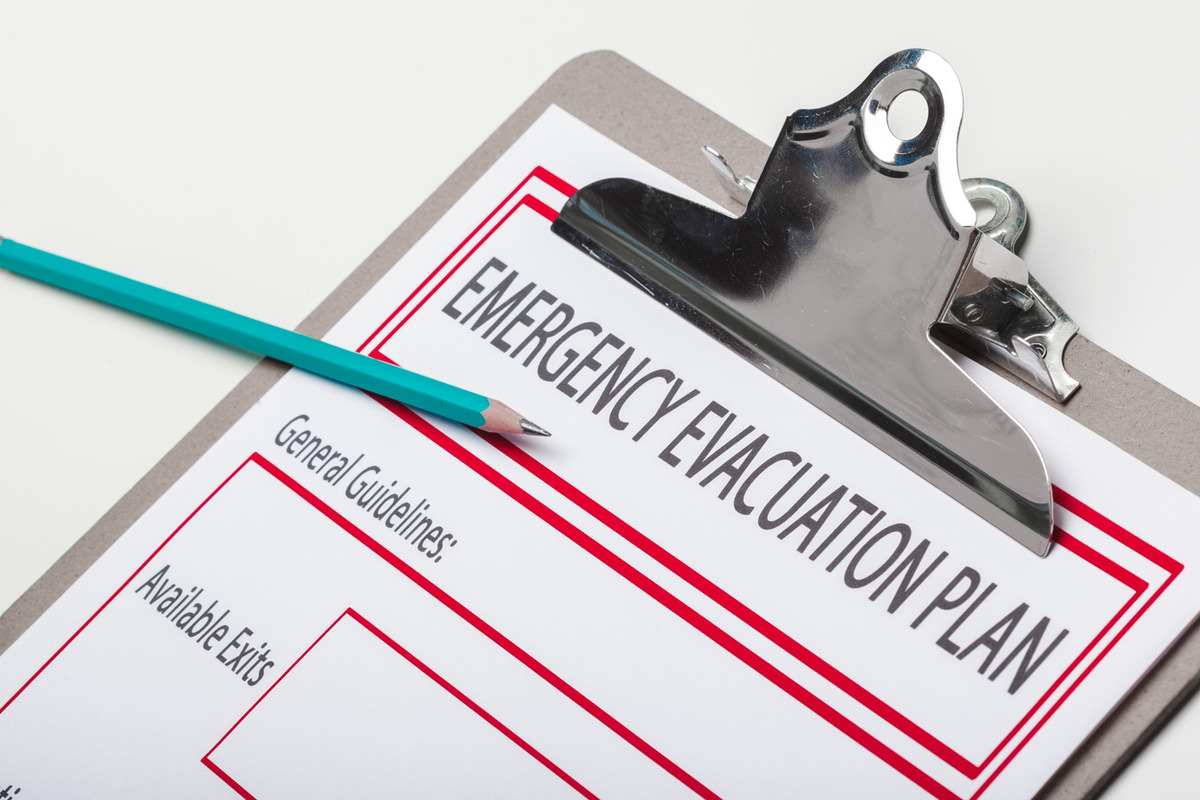Disasters can take many different forms. From hurricanes, bush fires, floods, and earthquakes to active shooter situations, explosions, or large-scale chemical leaks, however, all disasters are tied together by common threads. That extends even to smaller disasters that may affect only one family — house fires, or exposure to toxic fumes, for instance.

Pandemics, too, are classified as disasters, and with 2020 undoubtedly being a disaster of a year, even people who previously laughed at doomsday preppers have seen that being prepared can make all the difference. September is National Preparedness Month, and though we're certain that you're more prepared to deal with yet another unexpected challenge now than you were before COVID-19, it's a great time to review your personal readiness.
"Disasters don't wait," the theme of this year's National Preparedness Month goes — as if we needed to be reminded. "Make your plan today."
Having a plan in place can potentially save you and your family from physical injury, or save your life. Even if the worst does happen, emergency preparedness plans can help everyone managed the situation more smoothly.
Just how do you prepare for an emergency situation, given the fact that "disaster" is a rather broad term, and just about anything can happen?
What should you think about when making a personal disaster preparedness plan?
Prior to the advent of COVID-19, most people probably thought of hurricanes, earthquakes, tornadoes, and other "force of nature" events when they heard the word "disaster". These natural disasters may force people out of their homes or even tragically leave them altogether without a home.
We have since all had personal experience with the fact that a disaster can also play out altogether differently — forcing us to stay inside our homes, rather than leaving them.
Some things are always going to be useful when preparing for a potential diaster, regardless of its type.
Know your threats
If you have recently moved to a new area or are planning to, familiarize yourself with the most likely threats. Does the area often face hurricanes? Are earthquakes likely? Do you live near a large industrial center that could face some sort of emergency? Knowing what kind of disaster is statistically most likely will help you take the preparatory steps that have the highest odds of serving you well.
Smaller-scale emergencies are possible anywhere. You can start thinking about how to reduce the immediate risk to your health, such as by installing fire alarms and making sure your household chemicals are stored properly.
Emergency contacts
Gather your emergency contacts in one easy place — offline! Some disasters will, in one way or another, rob you of your access to important information you have likely spread out over many places, often electronically. Whether you are in a serious car accident or there is an event that causes a long-term power outage, both you and your loved ones will, along with emergency services, benefit from a simple document that contains all the important information you want people to have.
Discuss how you would get in touch with your loved ones should disaster strike and phones not work in advance, as well. In an all-out apocalypse, it would even help to agree on a physical meeting place quite far from your home.
Getting your disaster kit ready
Your disaster kit — and yes, you should have one — should include a first aid kit (if you have never taken a first aid course, you should strongly consider it), plenty of water, ideally a week's worth of shelf-stable food, and anything else you may need, depending on your specific situation. If you or someone else needs prescription medicines, menstrual pads, diapers, or formula, for instance, start building a stash.
While you may "bug in" rather than having to leave your home in a hurry, it's good to have your most essential things — which should also include some kind of personal identification documentation, along with insurance documents — in a backpack that you could easily grab without the need to gather anything.
Know your evacuation plan
Know how you would evacuate, and practice with your family. Know where the nearest hospital, fire house, and police station are, and how to get there even if you don't have a car. Be aware of how your local emergency alert system functions.
What does disaster preparedness mean in the age of COVID-19?
While the coronavirus is itself a disaster, this unfortunately doesn't mean that emergencies such as hurricanes, acts of terrorism, or chemical leaks can't also occur. In this age, a steady supply of face masks and hand sanitizer should be included in your disaster kit, for yourself and everyone else in your household.
If disaster strikes, don't panic and continue to practice social distancing whenever possible. Of course, immediate risk to life takes precedence over the possibility of transmitting or catching COVID-19. Remember, though, that the combination of COVID-19 and another diaster could place your local authorities under unbearable strain, and try to limit the risk of infection even in emergency situations.
- Photo courtesy of SteadyHealth


Your thoughts on this